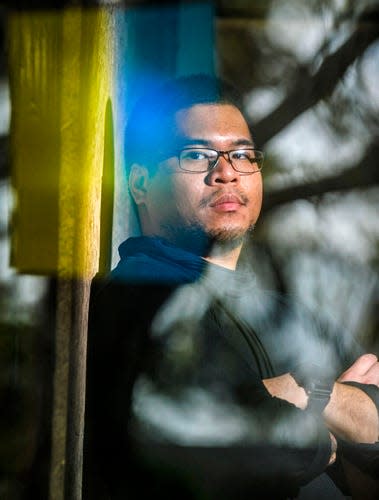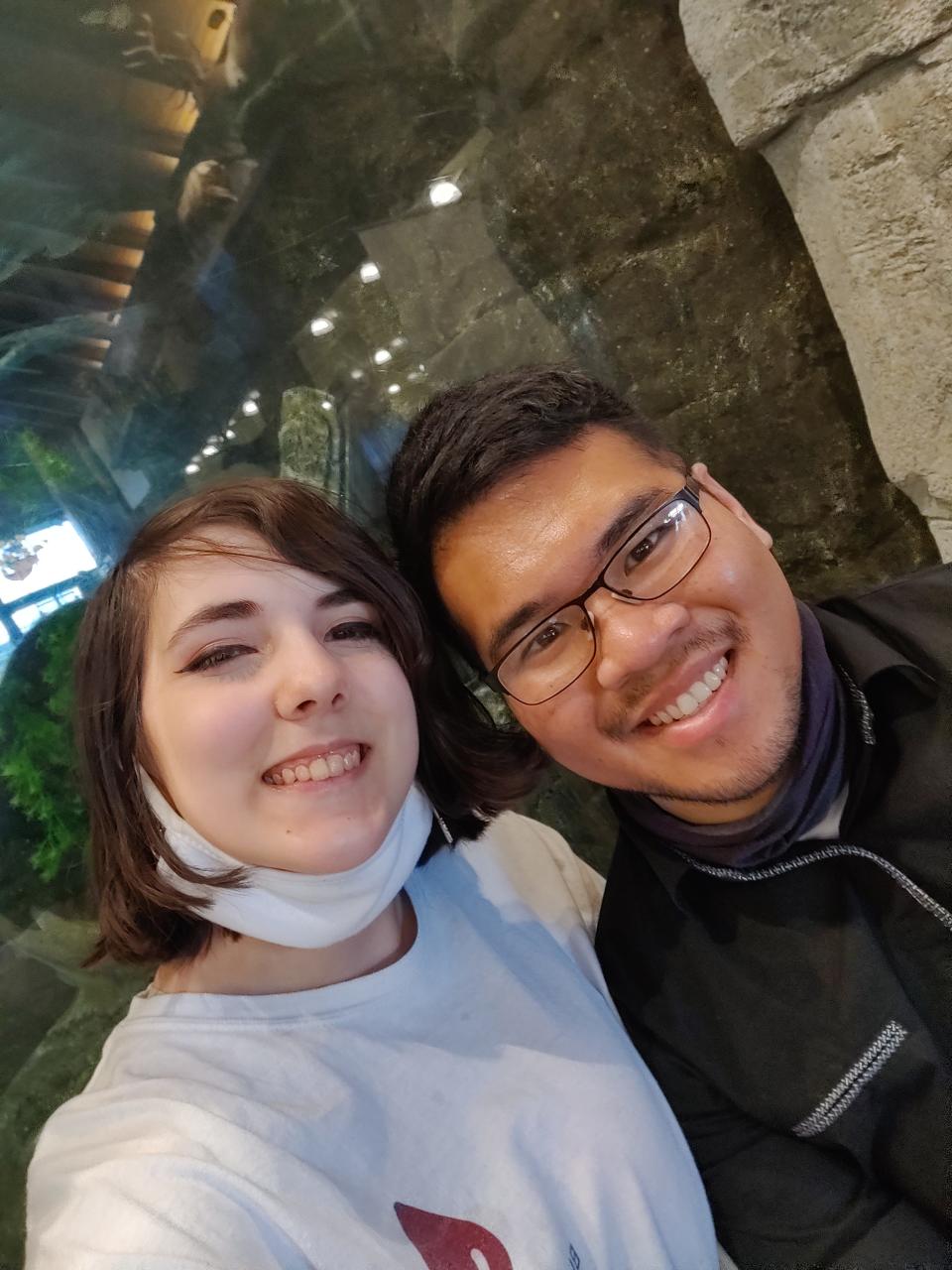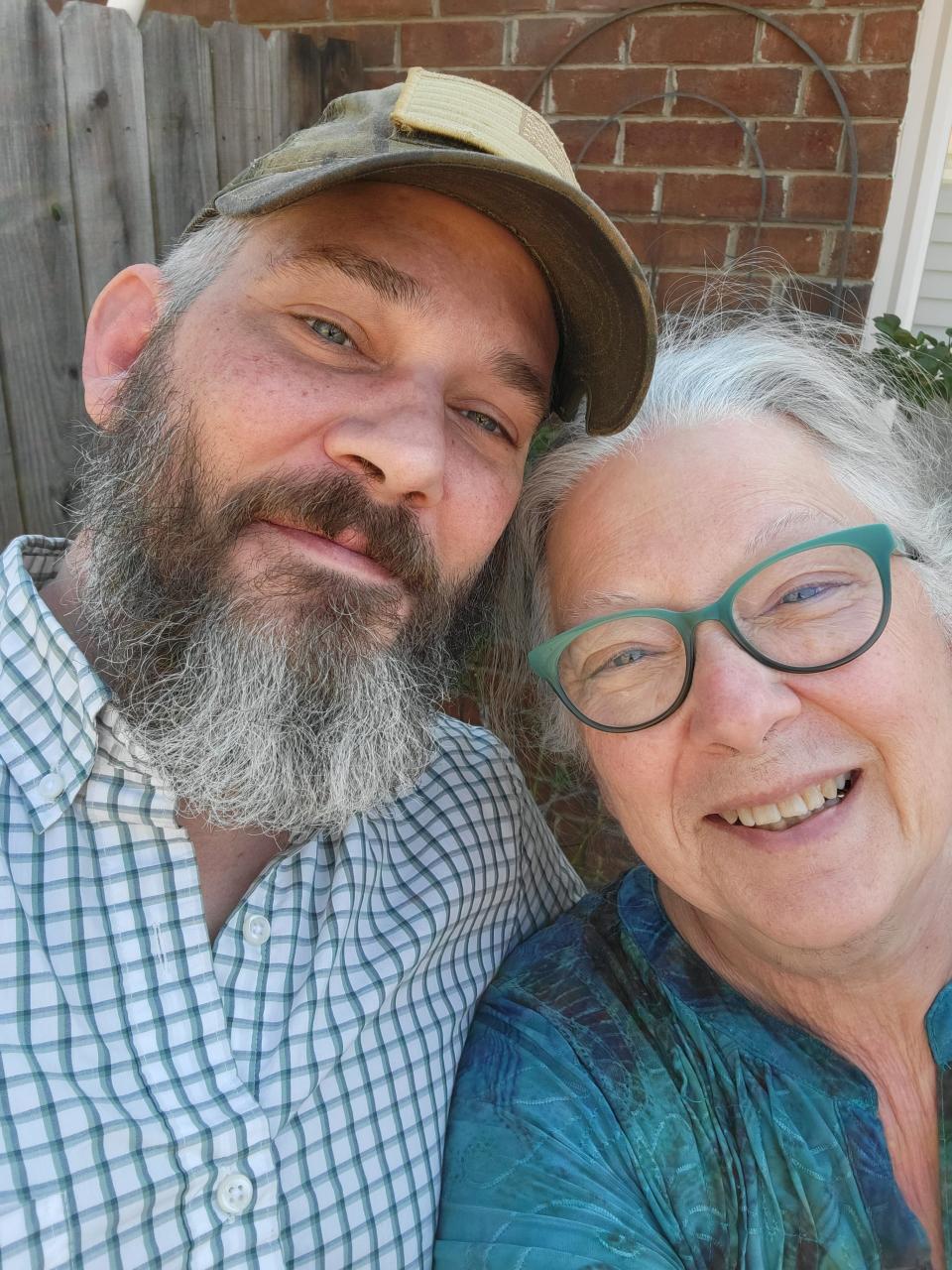Two US military veterans felt compelled to fight Russia. They've been captured in Ukraine.
Andy Tai Ngoc Huynh knew he might not come back. So the 27-year-old former Marine drew up a will, said goodbye to his fiancée and left Hartselle, Alabama, in April to help Ukrainians repel Russian forces.
That same month, not far away in Tuscaloosa, former Army Sgt. Alexander Drueke, a 39-year-old Iraq war veteran, had deliberated for a month before deciding to pack his gear for Ukraine.
The families of the two Alabama men – who went missing near Kharkiv in a battle last week – told USA TODAY they are holding out hope that the men could be released by Russian-backed separatist forces.
“We’re just hoping for good news,” said Huynh’s fiancée, Joy Black, 21. “He’s got such a big heart and a lot of compassion for people in need.”

Russian state television on Friday showed a video of the two men, confirming that they were taken captive and raising fears about their fate. They are believed to be the first Americans captured by Russian forces since the war began on Feb. 24.
Earlier Friday, Dianna Shaw, 55, Drueke’s aunt, said the U.S. State Department had told the family it was working to verify a photo of the pair appearing to show them in the back of a military truck.
"We appeal for Alex's and Andy's humane treatment in the meantime," Shaw said in a text message to USA TODAY.
In the video, Drueke, speaking into the camera from what appeared to be an office, sent a message to his mother, concluding with a quick wink.
“Mom, I just want to let you know that I’m alive and I hope to be back home as soon as I can be," he said. "So, love Diesel for me. Love you.” Before he left for Ukraine in April, Drueke had asked his mom to care for his dog, Diesel, a mastiff.
AMERICANS IN UKRAINE: Jimmy Hill was 'true to his love' and stayed with sick partner
Last week, two Britons and a Moroccan were sentenced to death by Russian-backed separatists in eastern Ukraine. Prosecutors claimed they were mercenaries and not entitled to protections afforded prisoners of war. USA TODAY contacted the Russian Foreign Ministry for comment but has not received a reply.
Meantime, the State Department has said it was aware of reports a third American was missing in Ukraine, which the Washington Post and CNN identified as Grady Kurpasi, another Marine veteran.
It’s not known how many Americans are among the foreign fighters who have volunteered in Ukraine, something U.S. officials have discouraged.
On Friday, President Joe Biden said he'd been briefed. "We don't know where they are, but I want to reiterate: Americans should not be going to Ukraine now. Say it again: Americans should not be going to Ukraine," he told reporters.
'What I believe is right': Both men leave Alabama to fight
Huynh and Drueke didn’t know each other in Alabama but became friends in Ukraine, according to several of their family members and loved ones, who described to USA TODAY in interviews and text messages their backgrounds and motivations.
Huynh “wasn't trying to play soldier. He wasn't running off looking for adventure, wanting to get into a war for excitement. He was going for compassionate reasons,” said Darla Black, 50, whose daughter is engaged to Huynh. She said he planned to help in whatever way he could be useful.
Huynh had served as a Marine from 2014 to 2018 and worked as an engineer equipment operator and spent time stationed in California, said Maj. Jim Stenger, a Marine Corps spokesperson.
Joy Black said she met Huynh online. He moved to northern Alabama after leaving the Corps, living in Hartselle, a small town not far from her home in Trinity. Both were attending Calhoun Community College – he for robotics and she for graphic design. They got engaged in March but still lived apart. “We were waiting till after we got married,” Black said.
After the war in Ukraine began in February, he saw images of destruction and began to feel called to help. He told a news station in April he had spent $6,000 to fund his travel. Joy Black said was scared but ultimately supported his plans.

"I’ve made peace with the decision. I know there’s a potential of me dying. I’m willing to give my life for what I believe is right. For what I’ve been taught is right, through really my eyes, Marine Corps, through God," Huynh told a local TV News station in April, adding that his own family also ultimately accepted the decision. Huynh's family could not be immediately reached for comment.
ON THE MAP: Tracking Russia's invasion of Ukraine
Joy Black said she kept in touch with Huynh but didn’t know what unit he was with. He didn’t share where he was but would sometimes say he was hearing shelling or seeing “some very horrible thing,” she said.
It was there that he met Drueke, and they became friends.
Drueke joined the U.S. Army in the wake of 9/11, Shaw said. He served as a chemical operations specialist in the Army Reserve from September 2002 to October 2014 and deployed to Kuwait in 2004 and to Iraq in 2008, according to U.S. Army spokesperson Heather Hagan. He held the rank of staff sergeant.
After the military experience, Shaw said, Drueke found solace in hiking, kayaking and other outdoor pursuits. He was hiking the Appalachian Trail in early 2020 when it was shut down due to the COVID-19 pandemic. He moved to a family property near Tuscaloosa. After the invasion, he began to consider going to help, she said.
“He isn’t married, he doesn’t have kids, and he has the training and the experience. He felt it was his duty to help defend democracy, wherever needed," his mother, Lois "Bunny" Drueke, said in a statement provided to USA TODAY.
He talked with his mother for a month or so before deciding to go, hoping he could help train the Ukrainian army on some of the equipment they were receiving, Shaw said.
“I remember the day he called me. Just right off the bat, he said ... 'I'm going to Ukraine,'” Shaw said. “My immediate response was: ‘For you, I understand. That’s the right thing for you to do.’”

Family holds out hope after pair go missing
Every four days or so, they communicated through secure app texts and a phone call.He provided few details but shared he was impressed with Ukrainian grit and determination as he was “moving from unit to unit,” Shaw said. “He just absolutely loved being there.”
On June 8, Joy Black said her fiancé told her that he would be unavailable for a few days. It would be the last time they spoke – she shared that she was excited to visit a sushi restaurant with her friends, and he said he loved her.
Around that same time, Drueke told his mother he was “going dark” for a couple of days. “Be careful. I love you,” his mother wrote back, Shaw recalled. “And he messaged back, ‘Yes, ma'am. I love you.’ And that was the last contact.”
Black said she began to worry when she hadn't heard from Huynh after four days.
In the early hours of June 13, another soldier in their unit contacted the families in Alabama and said the pair hadn’t met up at a rendezvous point during an operation. The caller said other soldiers waited and conducted a drone search, Shaw said.
The person explained that they came under heavy fire during a mission and that the two men got separated, Shaw said.
The unit was holding a strategic position and was forced to drop back, according to a statement from the Drueke family.
The New York Times reported that the men had joined the team they were with less than a day before going on a reconnaissance mission, said Chris Bowyer, a member of the unit who left Ukraine in late May but has received updates.
In a briefing Thursday, State Department spokesman Ned Price said any third-country nationals captured should be treated as prisoners of war under the Geneva Conventions.
IN UKRAINE: Russian bombs kill three generations — hours before evacuation
In Alabama, the Rev. Myron Mooney, pastor of Trinity Free Presbyterian Church where Huynh attends, told USA TODAY that before Huynh left, he told the pastor he had "an inward call from the Almighty to go."
Earlier Friday, Mooney said he worried about the prospect of him being captured.
Still, family members said they're proud of the motivations that led the men to travel to Ukraine.
“We are awaiting the State Department's confirmation. We feel very hopeful,” she said of Drueke, who turns 40 on June 24.
Joy Black said she wants Huynh back so they can marry and begin their life together.
For now, there is only waiting and hoping.
Chris Kenning is a national news writer. Reach him at ckenning@usatoday.com and on Twitter @chris_kenning.
Contributing: The Associated Press
More coverage from Ukraine
Full of stoicism and unspoken fear, Ukrainian men steel for battle as they say goodbye to families
Targeting oligarchs: How the seizure of Russian superyachts helps the feds punish Putin
Pride month: Many LGBTQ Ukrainians face hurdles entering US under humanitarian programs
This article originally appeared on USA TODAY: Americans captured in Ukraine: What led veterans Drueke, Huynh to go?

